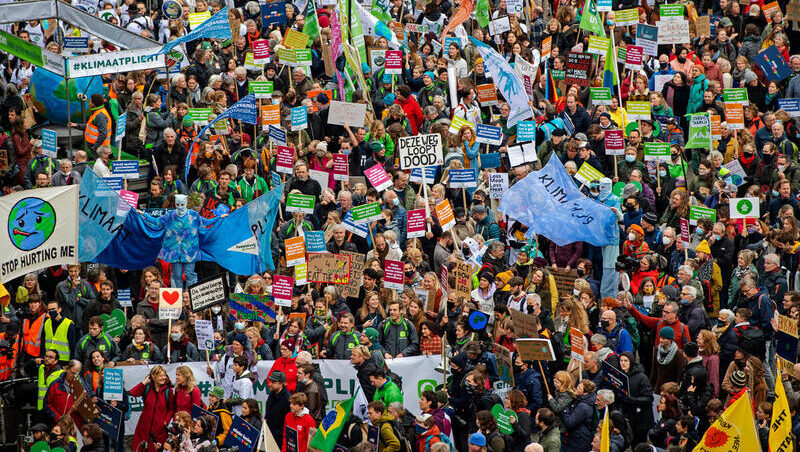Today’s report from the IPCC’s climate scientists is attracting headlines for issuing what’s been called a ‘final warning’ on action on climate change and a “clarion call” to massively fast-track climate efforts across every timeframe and country. Buried within it is some crucial guidance for what this means in practice.
The report states that “attention to equity and broad and meaningful participation” can build “social trust” and so “deepen and widen support for transformative changes.”
To put that in non-IPCC language; in climate policy, people matter. The kind of radical social changes supported – demanded – by this report simply won’t happen without the consent and participation of citizens around the world.
But reports, however brilliant, however terrifying, don’t inspire action. That falls to us, as citizens, led by our governments around the world.
For many years, this critical part of the climate change response has been strangely ignored. Socially marginalised and economically vulnerable citizens, and those who are more impacted by changing temperatures, remain excluded from the conversation.
Rebellions against climate policies emerge as a result. Governments pay lip-service to the idea of communicating with and engaging citizens. But as the Committee on Climate Change has recognised in the UK, there’s rarely a plan for how to do it.
Governments around the world actually have a formal duty – embedded in article 6 of the UNFCCC – to educate their citizens on climate change, involve them in policymaking and ensure they have all the necessary information.
The UNFCCC’s Action for Climate Empowerment (ACE) is made up of six elements: education, training, public awareness, public participation, public access to information and international cooperation. These six principles are all core to public engagement, and most importantly to holding governments accountable.
States are legally obliged to implement many of elements of ACE, but many are not aware of it yet. It is vital that we continue to make the case to them about the importance of public engagement if we are to avert climate breakdown.
IPCC highlights rich nations’ failure to help developing world adapt to climate change
Governments are important not just as policymakers, but educators. Today’s report specifically flags the importance of “education including capacity building, climate literacy, and information provided through climate services and community approaches” to “heighten risk perception and accelerate behavioural changes and planning”.
What does that mean in practice? Providing more and more frightening information about the coming impacts of climate change can just as easily be overwhelming and despair-inducing as helpful.
So what we need instead are bold, positive campaigns that support feelings of ‘efficacy’ – giving people that feeling that it’s possible to do something on climate change, and that that something has the potential to make a difference. This applies, for example, to campaigns around getting football fans talking about and pledging action on climate change, changing travel behaviours, or getting involved with Fridays for Future.
Climate change communications shows that people take action when they see their values, identities and concerns reflected in the story being told, and are able to observe and hear about their peers taking action.
Green Climate Fund credibility hangs over response to violence in Nicaragua project
Citizens who are going to change their lives need to be supported to do so in communities of collective action, whether that’s with communities in big cities boosting access to green spaces or social housing tenants leading the conversation on housing retrofit.
Achieving this isn’t easy. At the government level, doing this right means bringing together social science, communication and policy experts alongside businesses and citizens involved in tackling climate change in their lives and communities. It means making public engagement a core function of government, and funding it properly. It means introducing climate policy that treats everyone as they should be treated.
It’s a big challenge. But attitudes towards – and concern about – climate change is changing rapidly. Climate Outreach’s research shows that people are hungry for change and aware of the need for profound social transformation, but in many cases desperately seeking support and information about how they can be involved. Turbo-charging public engagement means pushing at an open door.
I’ll end with some more words from IPCC: “Climate resilient development is advanced when actors work in equitable, just and inclusive ways to reconcile divergent interests, values and worldviews, toward equitable and just outcomes.”
Pulling people together to take action on climate change requires a true bottom up, listening, participatory approach to working with different people across societies. Achieving this isn’t the job of the scientists. They’ve done their job. Now governments and all of us need to do ours.
Robin Webster leads on advocacy communications for UK-based NGO Climate Outreach, a team of social scientists and communications specialists which aims to build a social mandate for climate action
